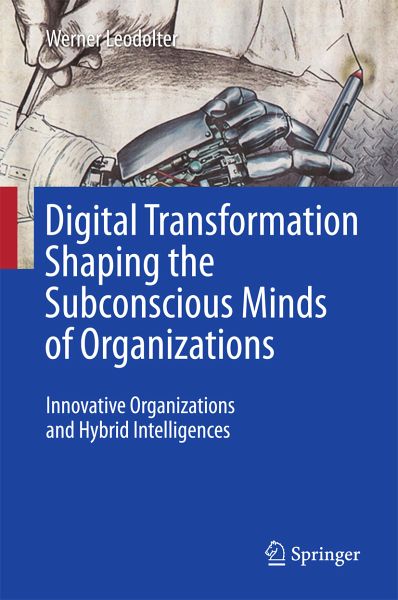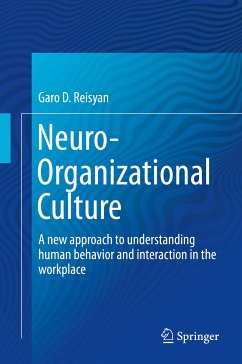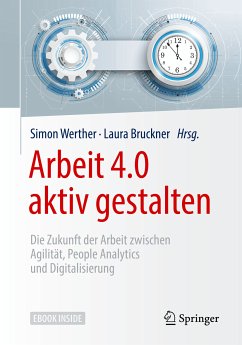
Digital Transformation Shaping the Subconscious Minds of Organizations (eBook, PDF)
Innovative Organizations and Hybrid Intelligences
Versandkostenfrei!
Sofort per Download lieferbar
40,95 €
inkl. MwSt.
Weitere Ausgaben:

PAYBACK Punkte
20 °P sammeln!
This book offers a new framework for conceptualizing and managing organizations when using new information and communication technologies, for example decision support and artificial intelligence. The book supports managers to actively guide the digital transformation of an organization through its strong metaphor of the subconscious mind of organizations. By designing and developing the subconscious mind, future organizations will evolve as successful and sustainable when implementing "hybrid intelligences" with a significant share of artificial intelligence but the clear primacy of the human...
This book offers a new framework for conceptualizing and managing organizations when using new information and communication technologies, for example decision support and artificial intelligence. The book supports managers to actively guide the digital transformation of an organization through its strong metaphor of the subconscious mind of organizations. By designing and developing the subconscious mind, future organizations will evolve as successful and sustainable when implementing "hybrid intelligences" with a significant share of artificial intelligence but the clear primacy of the human.
The author draws upon the psychological aspects of decision making, taking the reader from perception to analysis, conclusions and on to decision and action. Short, lucid stories support the conceptual ideas and form three narrations about the future of manufacturing, healthcare and retail. The effects of incorporating new technologies like sensors, visual analytics, decisionsupport, artificial intelligence and robotics are explored. The reader gains a comprehensive view on management and organizational behavior, both as it is now and expectations for the future.
This book will have wide appeal: information managers, strategists, organizational developers, management consultants and management students will find valuable support in this book which enables them to triumph in the digital transformation. The thought-provoking set of guiding principles and the ideas explored have something to offer to all those interested in the future of organizations, economics and society.
The author draws upon the psychological aspects of decision making, taking the reader from perception to analysis, conclusions and on to decision and action. Short, lucid stories support the conceptual ideas and form three narrations about the future of manufacturing, healthcare and retail. The effects of incorporating new technologies like sensors, visual analytics, decisionsupport, artificial intelligence and robotics are explored. The reader gains a comprehensive view on management and organizational behavior, both as it is now and expectations for the future.
This book will have wide appeal: information managers, strategists, organizational developers, management consultants and management students will find valuable support in this book which enables them to triumph in the digital transformation. The thought-provoking set of guiding principles and the ideas explored have something to offer to all those interested in the future of organizations, economics and society.
Dieser Download kann aus rechtlichen Gründen nur mit Rechnungsadresse in A, B, BG, CY, CZ, D, DK, EW, E, FIN, F, GR, HR, H, IRL, I, LT, L, LR, M, NL, PL, P, R, S, SLO, SK ausgeliefert werden.












